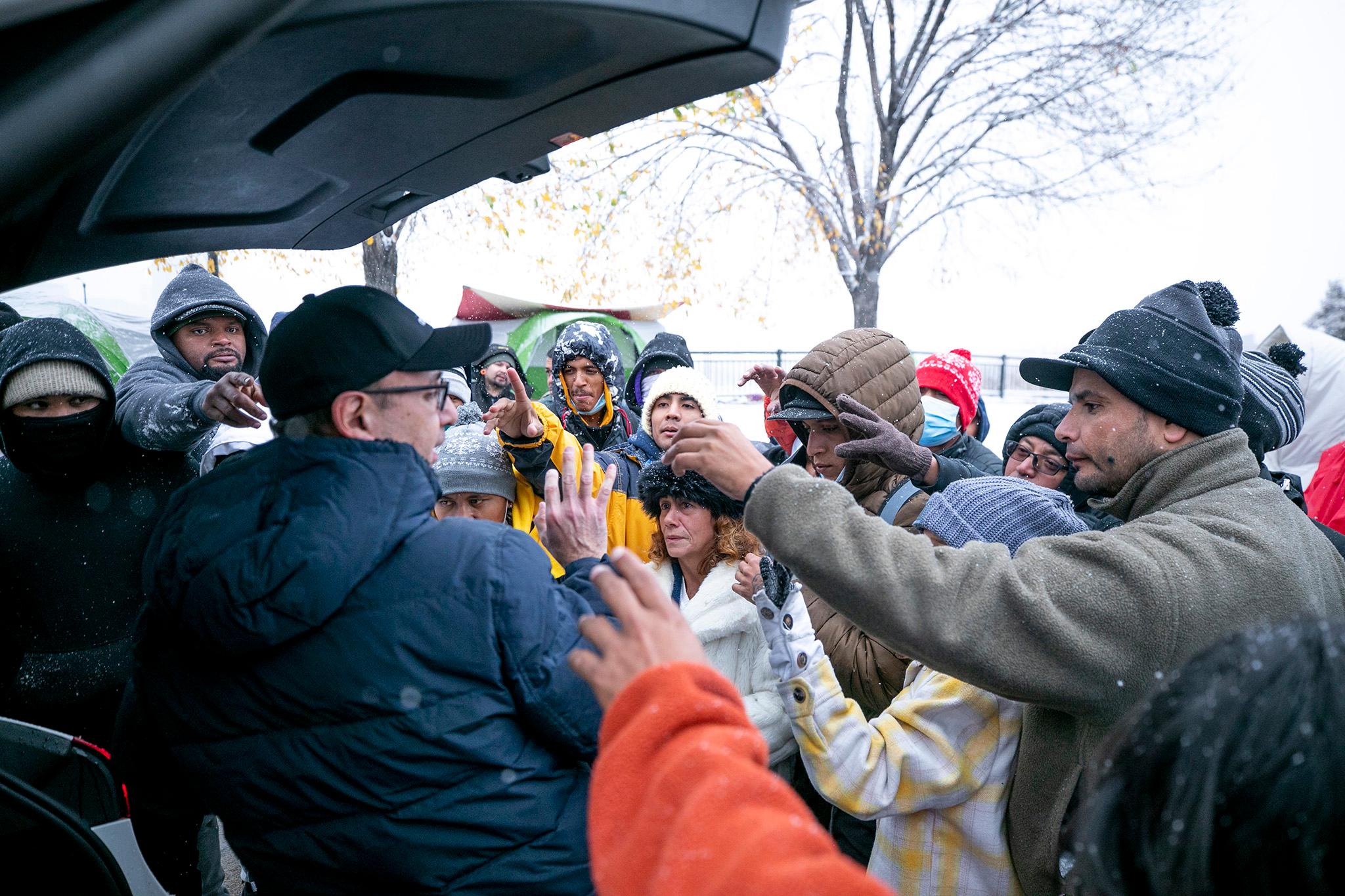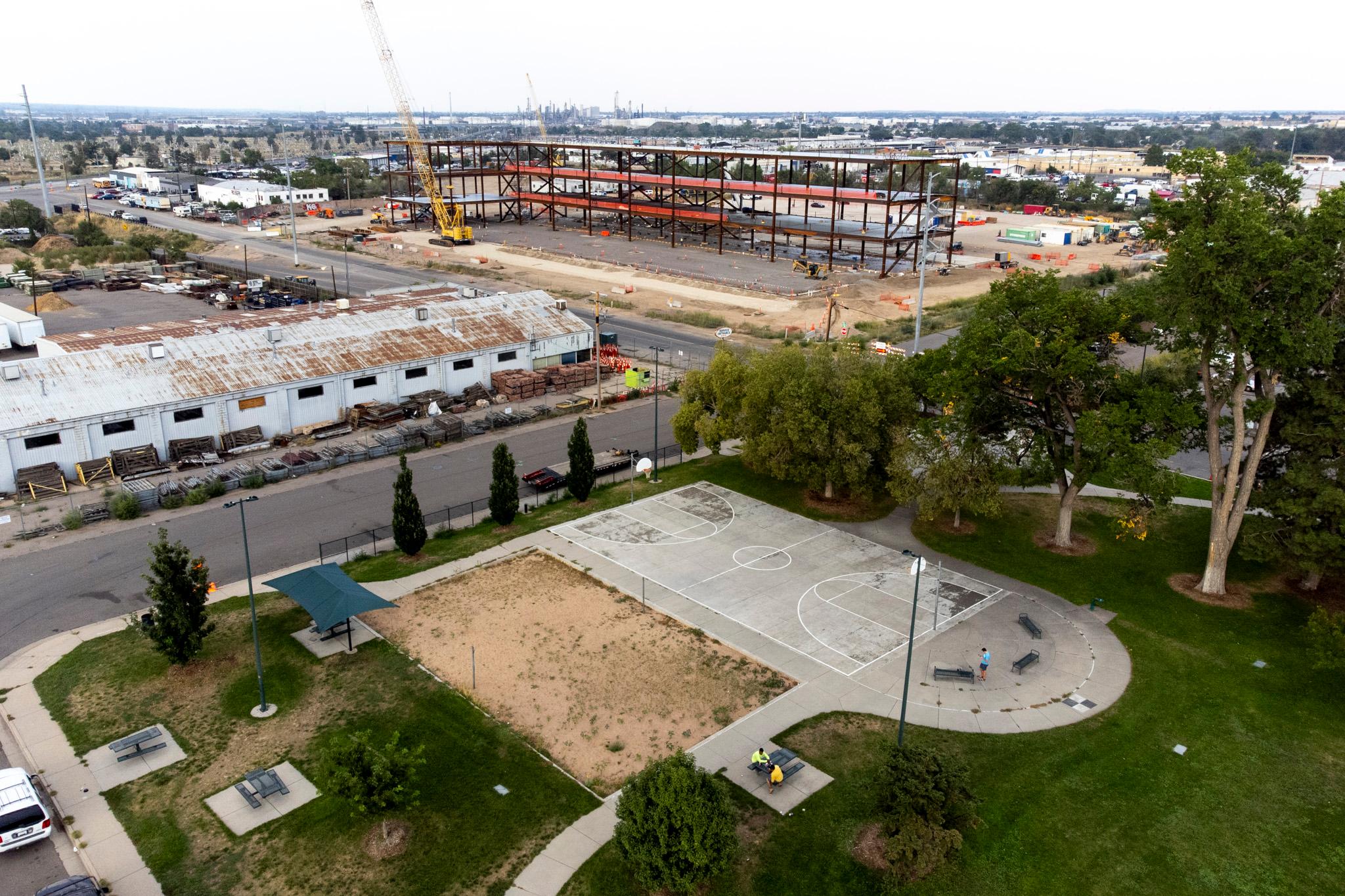Cars pulled up to the old Quality Inn motel at Speer Boulevard and Zuni Street on Saturday evening as snow thickened over the city. Scores of people crossed the street to greet them when the drivers opened their trunks to reveal bags of clothes or boxes of pizza to give away.
This motel is part of the city's migrant sheltering system, which was activated when arrivals from the nation's southern border grew to unsustainable levels late last year. While their numbers slowed this summer, many more arrived this month, setting a new record for people sheltered in city-contracted facilities.
Many of the people clamoring for food and clothing were still staying in the motel, but told us that they're prohibited from bringing some kinds of food into their rooms. So some were hungry and welcomed the donations. Others, who were kicked out for breaking that rule - or who timed out after they hit a city-mandated time limit - were sleeping in tents across the street; they were cold, often underdressed, and grateful for the gloves and shoes that people brought to their camp.
"Frío, frío, frío, frío," one man muttered as he paced around a fire next to some tents.
Santos Vera was one of the people fielding a crowd gathered around his open trunk. He's CEO of STRIDE Community Health Center, a clinic that caters to local immigrants and refugees. Serving this community is part of his organization's mission, but he was here as a neighbor.
"I actually live not too far away. I was driving by. We were going to Costco and I told my wife, 'Let's go pick up some food and come back here.' We're going to another encampment that we drove by as well," he said.
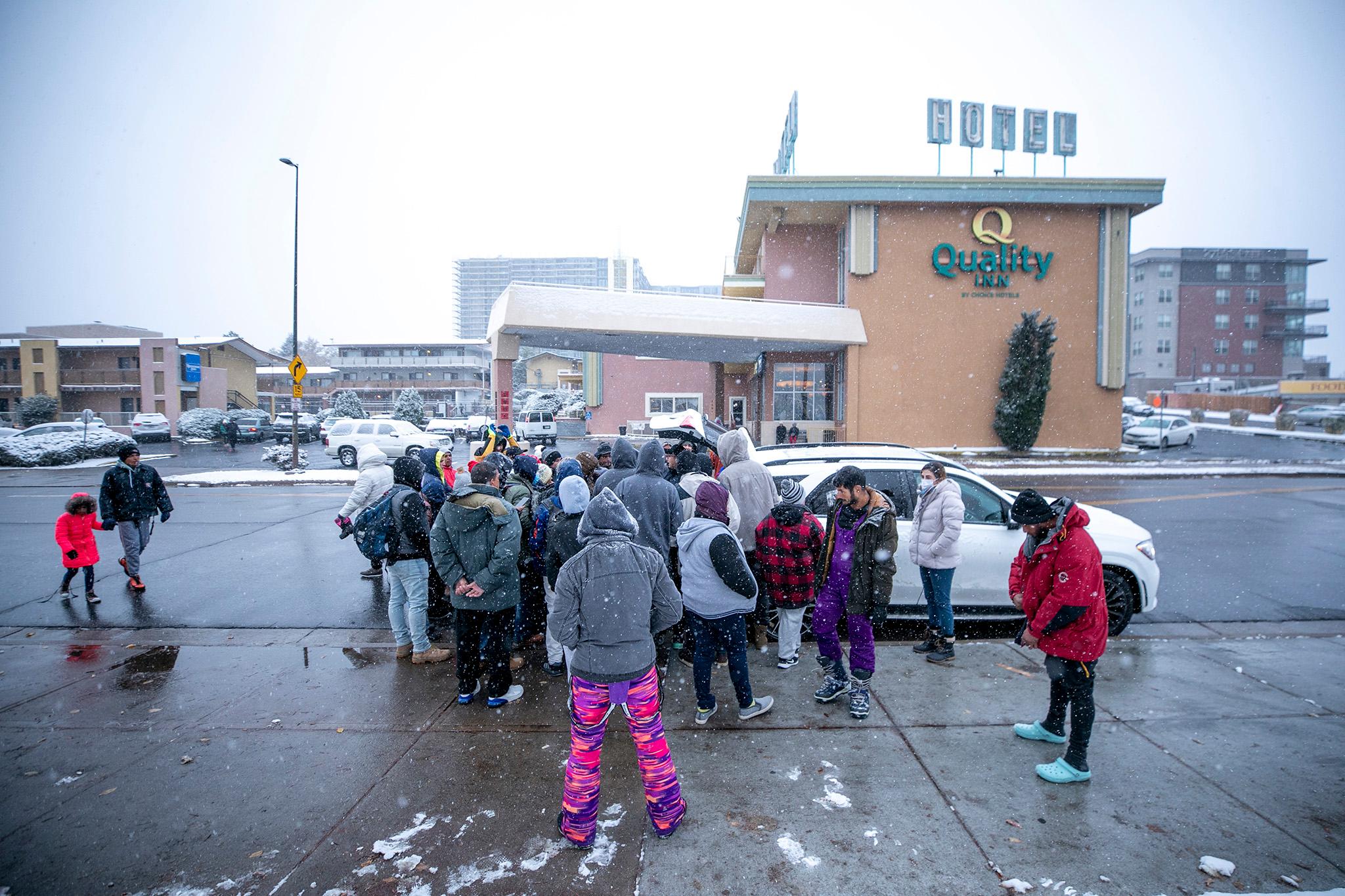
Denver did open emergency shelters, but people sleeping outside the motel declined the offer.
Amy Beck, a longtime advocate for unhoused people in Denver, showed up to the camp Saturday evening to try to move some people inside. She'd been following along as the city activated its cold weather plan, and explained how it worked to those hunkered down across from the hotel.
"You'll have to take all of your belongings so we don't lose them," she told a few people through a translator app; if they left their tents in this tiny park, they might never get them back.
"No," one man said, shaking his head.
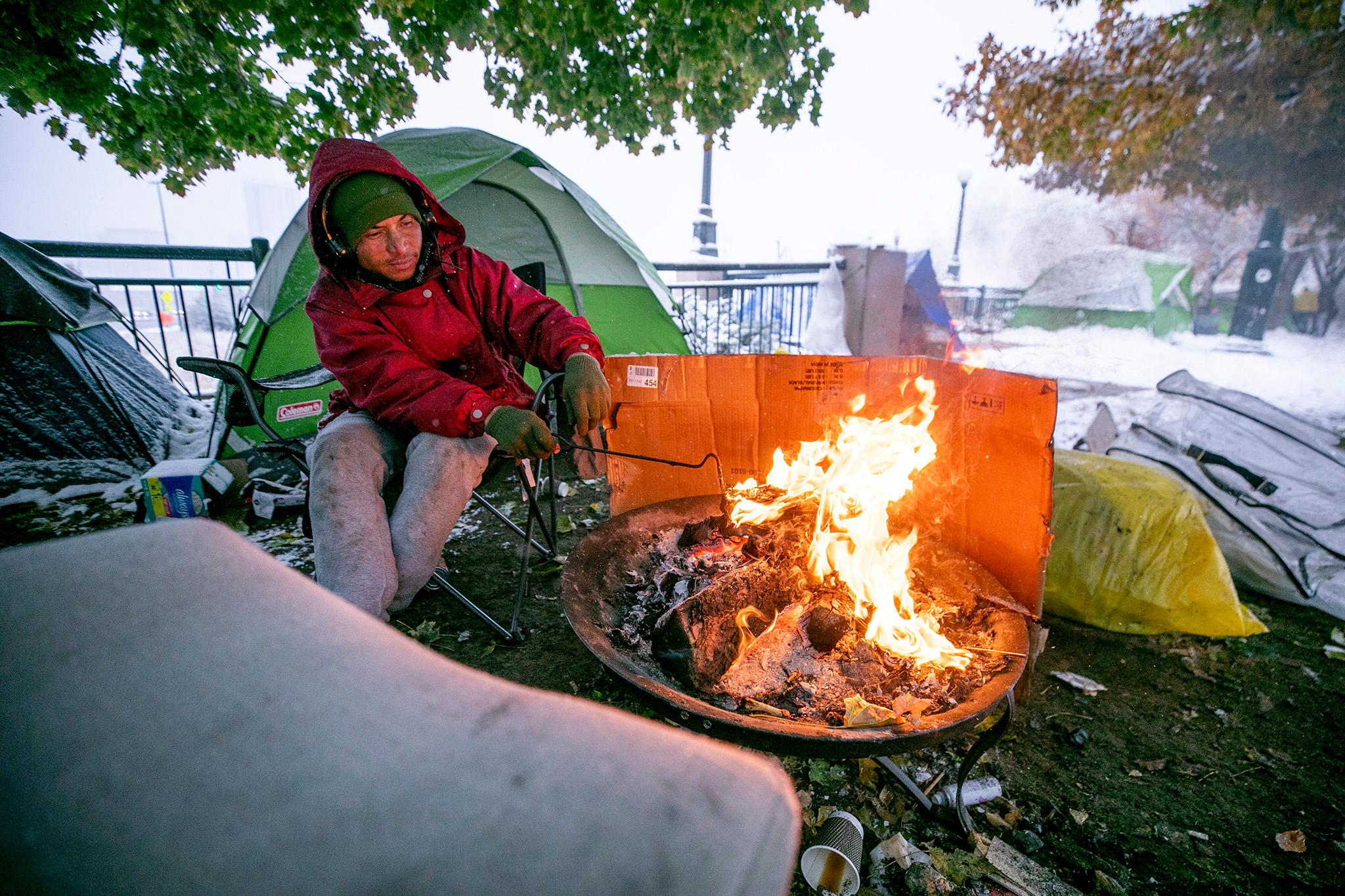
Denver's emergency plans for cold weather dictate that people must move between day and night shelters during cold weekends like this. The items these men had collected in the park where they slept were all they had, and they could not see a way to pack up everything and tote it around for the next few days.
By the time the sun set, most people had decided to stay together and stick it out. Beck stayed all night, watching as Denver Fire vehicles passed by the fire they'd erected under a tree, then approached the group to extinguish it after midnight.
"Fire truck just came. They stomped out their fire, because they've resorted to burning furniture," Beck texted at 12:30 a.m. on Sunday morning. "Just handed out a new round of hand warmers. They are super cold."
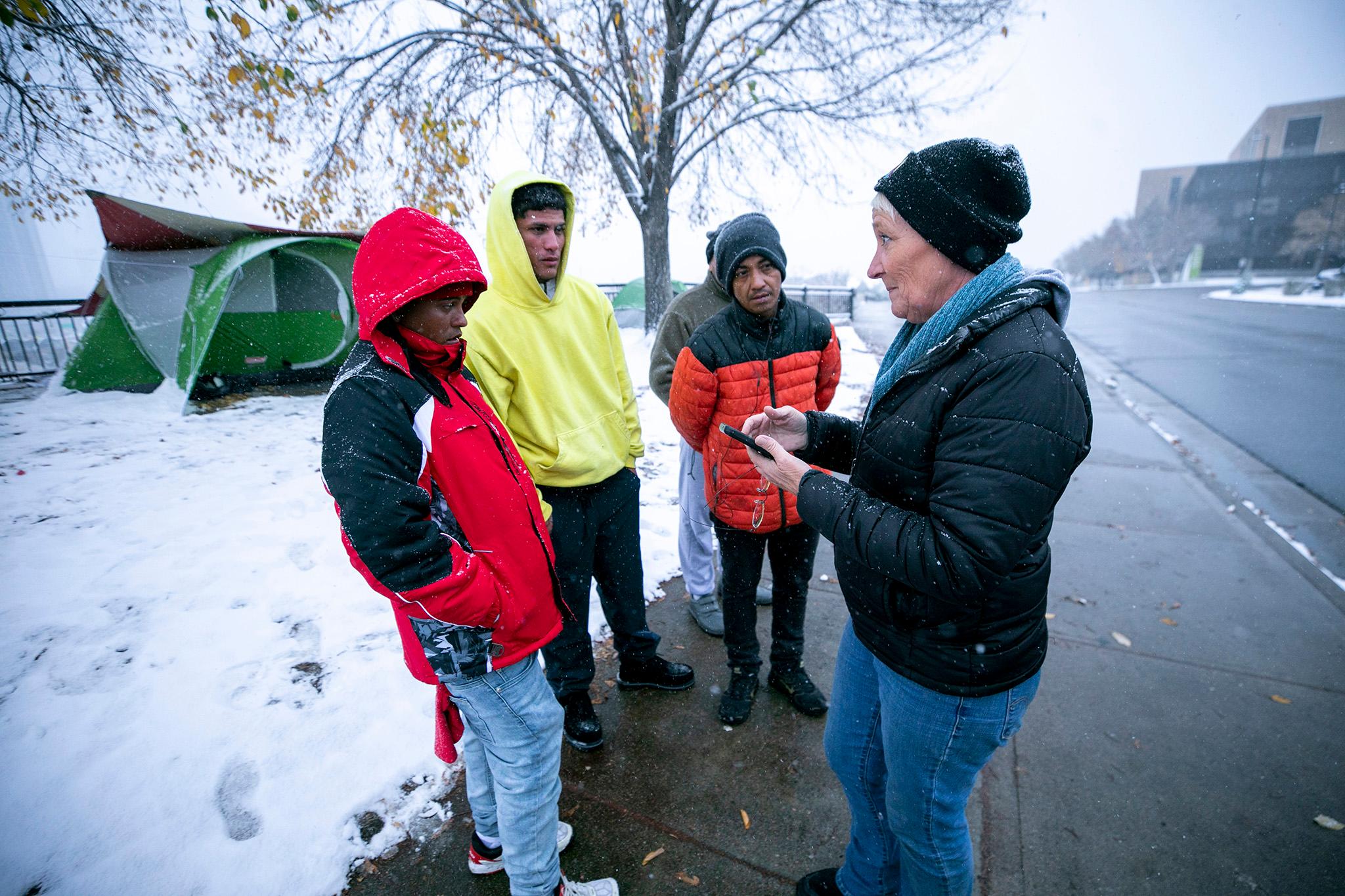
Those still staying in the motel fear they'll end up outside soon enough.
Jairo Bermudez, who is from Venezuela and arrived in Denver about a week ago, said he's not sure where he'll go once he has to leave the hotel. As of October, single adults may stay in city-offered shelters like this for 14 days; families with children may stay up to 37 days.
In the meantime, Bermudez said he's grateful for the roof over his head, but he said he may well end up across the street once he times out.
"I don't know anyone here." he told us.
Katherine Gutierrez said she's also worried about that possibility, especially as winter descends upon Denver.
"Fear. Fear. Fear, of course," she told us in Spanish, "because I don't have anything. I have two children."
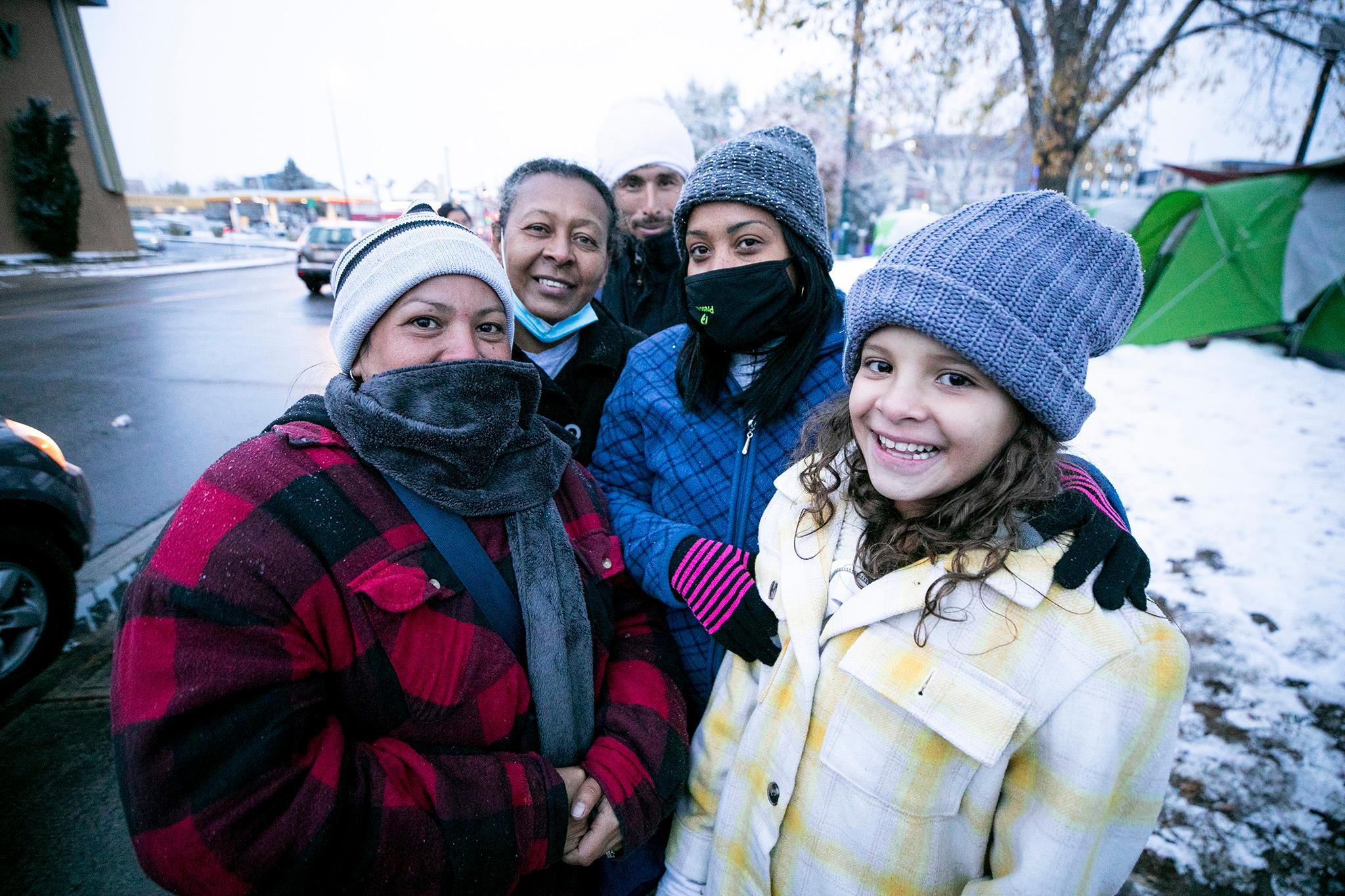
Several days last week, Denver Police discovered children sleeping at the camp with families who had to leave their rooms for one reason or another.
On Wednesday, we met Jose Gomez there with his four-year-old, Kenny, Gomez fumed about losing his spot in the motel, saying he'd been caught with food in his room.
"They take people outside like dogs," he said in Spanish. "They need help."
In a statement, a city spokesperson told us "current shelter policy allows for migrant guests to have a reasonable number of non-perishable snacks and consumption of one-time meals in their rooms," adding that they warn people before they make anyone leave.
"It is crucial that we prevent pest problems, especially since the hotels do not have mini-fridges and people have at times stored perishable foods in their rooms," they wrote us. "While it is never the first action, for us to maintain sanitary and safe conditions within rooms we do in some cases have to end guest stays due to policy infractions."
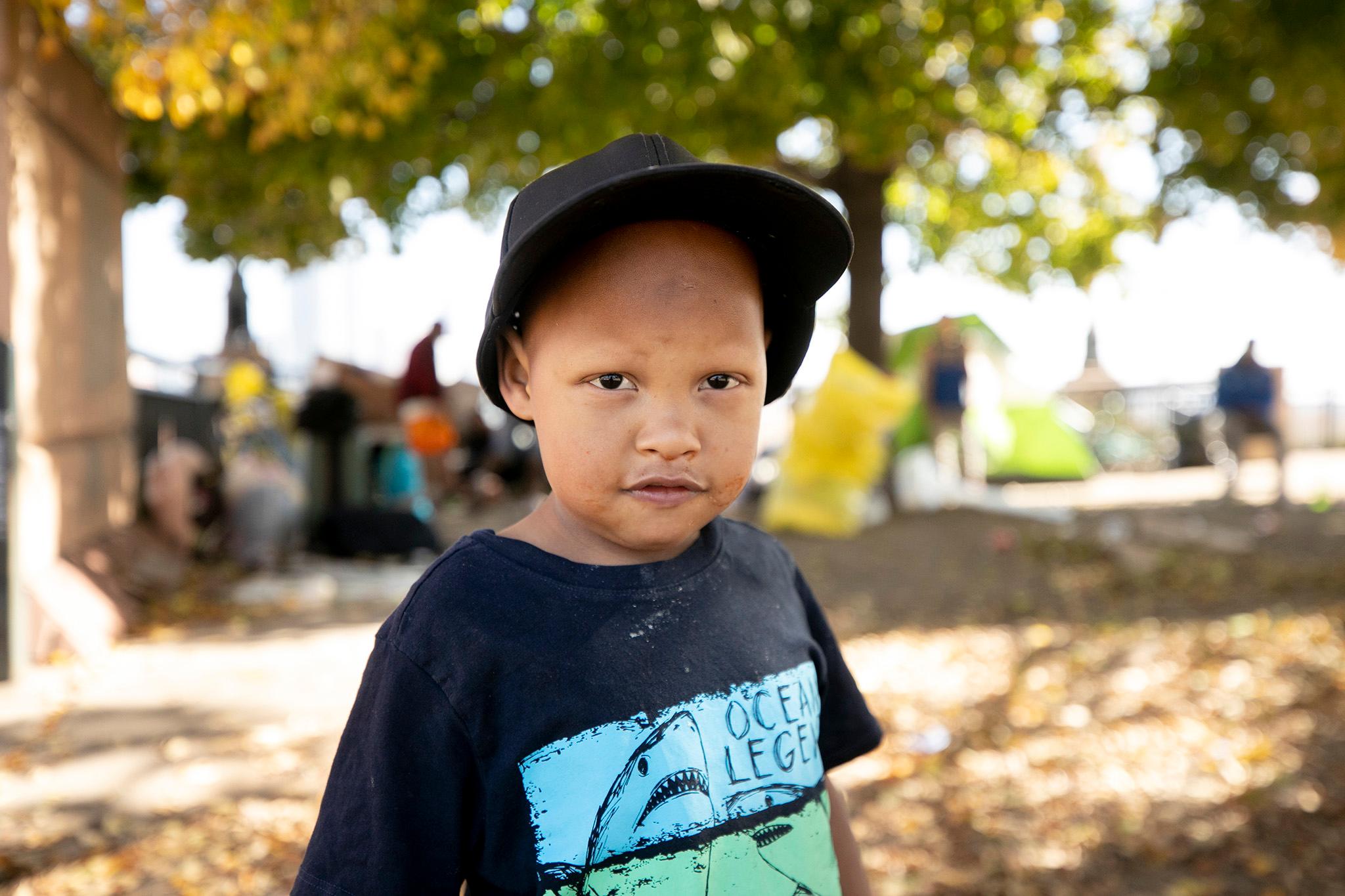
Denver Police officers put families with children that they found into other hotel rooms for the weekend, city officials confirmed to us. But more may find themselves outside once this cold snap ends. Beck forwarded us an email from Sterling Simms, who works in Mayor Mike Johnston's office, confirming that "length of stay exits" were stopped for the storm but will resume Tuesday morning when the official cold-weather emergency expires.
The situation is bad enough that a whistleblower who apparently works for the city told KDVR that they worried someone forced out of shelters like these might end up dead.
This episode demonstrates the enormous task cities like Denver have ahead of them.
For almost a year, Denver officials have been sounding the alarm about the expense of sheltering people who arrive here.
Former Mayor Michael Hancock described it pushing the city to a "breaking point" as his administration worked to access federal reimbursements for the hundreds of thousands of dollars the city was spending each week last spring. His warning echoed calls by leaders in New York City, Chicago and Texas for the federal government to act on immigration, and provide more resources to help cities fielding people entering the country (though, of course, the tones and contents of their messages differed by political affiliation).
Beck said the encampment outside of the Zuni Street hotel is a clear sign that the city's sheltering apparatus needs work, both for migrants and for people who are from here and have no place to go.
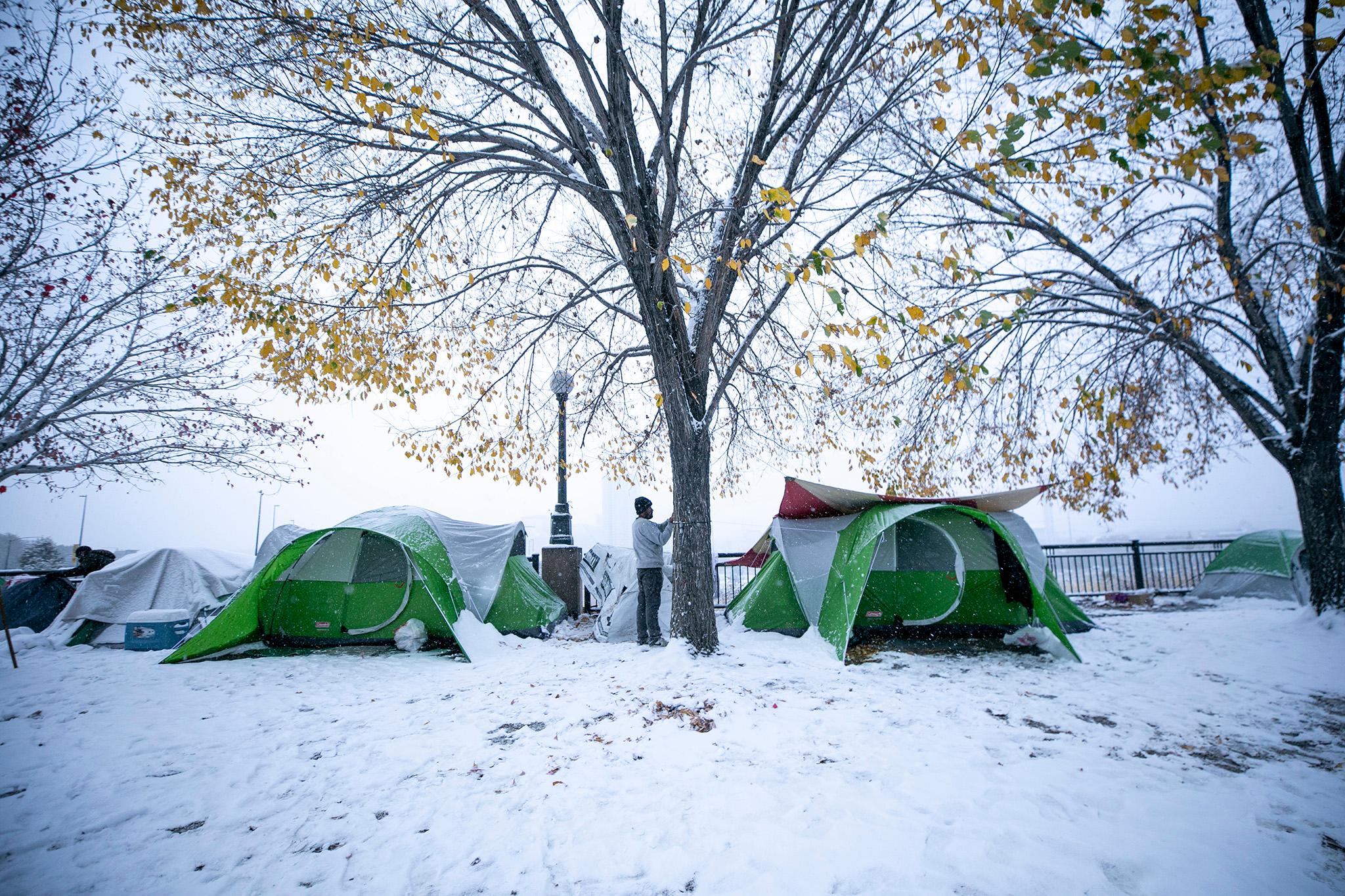
Jennifer Piper, an advocate with the immigration-focused American Friends Service Committee, said her organization is appreciative of the city's work to serve newcomers, but added the state, Denver and our municipal neighbors must do more to close those gaps. They're calling on cities to coordinate with local residents and organizations to put more boots on the ground, and dedicate more funding to allow people to stay in shelters longer. And, like so many other discussions in Denver, she said housing access underpins all of this.
"The state legislature and cities must overhaul housing laws that continue to allow developers to purchase land for luxury housing," she wrote us. "I am very concerned about the safety of all houseless people - most especially those who arrived to Denver just two weeks ago who lack winter clothing or much knowledge of the city and have been pushed to the streets."
She recommended people who want to help open up rooms in their homes.
Santos Vera, the STRIDE Community Health CEO who we met as he unloaded pizza on Zuni Street Saturday evening, said he went out to help because he knows intimately that America is still struggling to keep up with the many people coming here for a better life.
"I don't think anybody's prepared right now, whether its county, city, state or even at the federal level," he told us. "I think it's just going to grow, and unfortunately we're not prepared."
Update: Quotes from a city spokesperson have been added to clarify how rules and forced exits work in the motel shelter.

